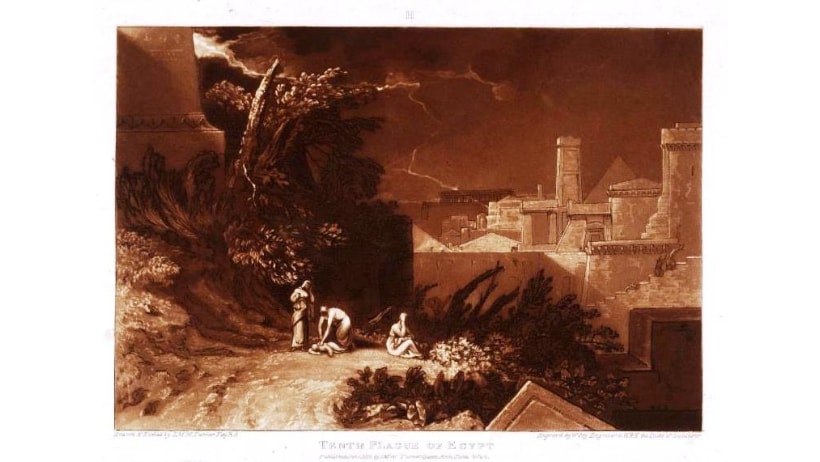Oasis Songs: Musings from Rav D
April 15, 2016 / 7 Nisan, 5776
The Shabbat that precedes Passover is known as Shabbat HaGadol, the Great Shabbat. Different explanations have been given for that name over the years–often a sign that we no longer possess the original reason. Regardless of this uncertain history, I am pleased to say that this weekend, the name is quite fitting as we have a number of remarkable events rolled into our Saturday morning service.
First, much of the davening (praying) will be led by our Aliyah students. It’s always heart-warming to witness our youth stepping up and serving as our communal prayer representatives (Shlichei Tzibbur).

Second, we are celebrating the most recent additions to our congregational family as we mark our New Member Shabbat. They are a wonderful and eclectic group and I feel certain that they will continue to enrich our kehilla. We are definitely blessed by how fascinating and diverse a group we are. Please come to support these individuals and families as we grow and enhance our culture of inclusion.
Third, we have on loan for this weekend a special scroll of all the year’s haftarot. While Jews everywhere normally chant the haftarah, (the reading from the later parts of the Bible) from our chumashim, this was not always the case. Once, these selections from scripture were also hand written by trained scribes. Over time, the practice (and the cost of such scrolls) fell, well, out of practice. The Conservative Movement’s Federation of Jewish Men’s Club commissioned such a scroll over a decade ago. It has since been making its way around the country. We are honored to host it and Steve Sirkin, our Men’s Club president, deserves a special call out for arranging this. On Friday night, I’ll be talking about this scroll in more depth, and on Friday and Saturday, congregants will have the opportunity to see this up close.
Pesach is upon us. I’ve heard from so many of us who are busy with our preparations. In my kitchen, ingredients and cabinets are in full shift. Even the tupperware has migrated as we make room for the holiday. This highlights another mah nishtana moment—another reminder that it is not just the Seder meal that is so different during Passover. We clean the house, we change our food habits, we sell our hametz, we attend meals with friends and families and reenact and relive our march from slavery to freedom. We celebrate–and practice self-restraint. We learn–and we experience. Is there another Jewish holiday that operates on so many levels?
One of the more profound parts of the festival occurs before its onset. Next Friday morning, immediately after our daily minyan, which will begin at 7 am, we will be observing Ta’anit Bekhorot, or the Fast of the First Born. All first born children are obligated to fast until the evening.
The origins of this practice serves as a powerful reminder that it is not very easy or useful to separate the mitzvot into ethical and ritual categories–for it is a commemoration of those first-born Egyptians who perished in the tenth and final plague. Is this self-denial ritual or ethical in nature?
This fast should give us all pause. It is a bit of a truism that any people’s freedom from oppression results in the suffering of those who tyrannized them. On the other hand, it is not at all common for that freed people to continue to afflict themselves for thousands of years after the event as a form of spiritual camaraderie for and connection to their fallen enemies. We didn’t want the Egyptians to suffer, yet their leadership enslaved us and repeatedly refused to grant us the basic dignity of human freedom. Frankly, I can’t think of another culture that does anything similar (if you can, please drop me an email). The Germans possess a concept of schadenfreude, taking pleasure in another’s suffering. Our fast is just the opposite.
As profoundly meaningful as this commemoration is, there is a venerable custom that overrides the stipulations of our minor fast days, and that is a siyyum, or celebratory conclusion of a significant book of Jewish learning (traditionally a Talmudic tractate). In preparation for this day, I have been learning Rambam’s Laws of Hametz and Matzoh, and will finish my study on Friday morning. Those who are present become obligated to participate in a seudat mitzvah, a “mitzvah meal.” In this case, it will be our last bagels for a week! Once first born children have eaten for this purpose, they are permitted to continue eating.
So I invite all you first born kids of any age to join our regular minyanaires after prayer service–about 7:30, for a short study session. That will also be the last time that I will be purchasing your hametz.
Shabbat HaGadol Shalom,
Rav D
Sale of Hametz attached form
Passover Guide here



